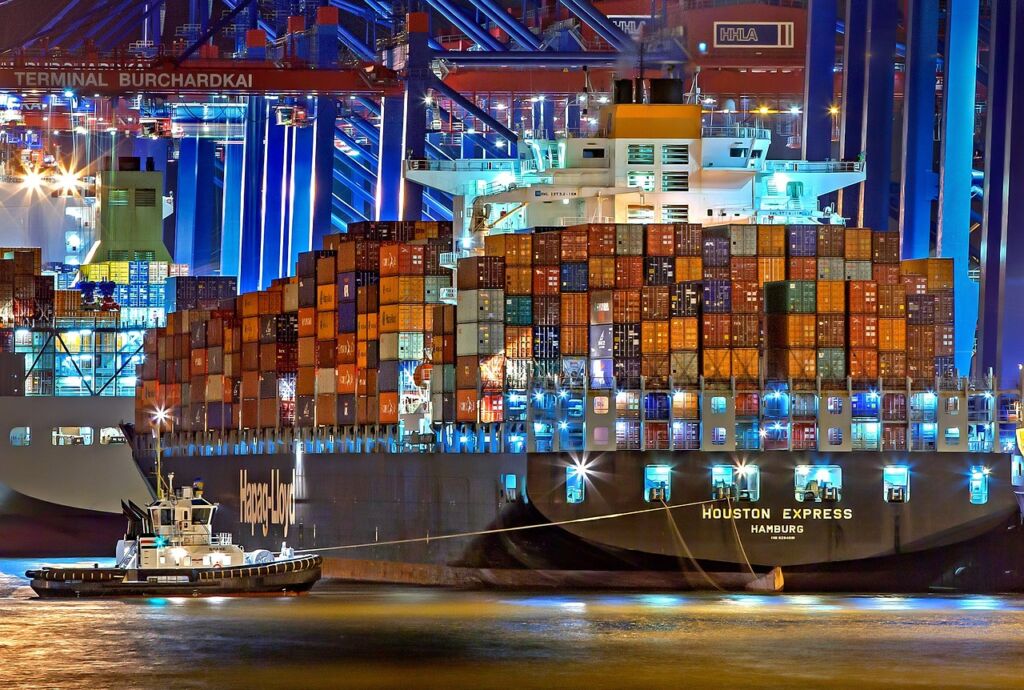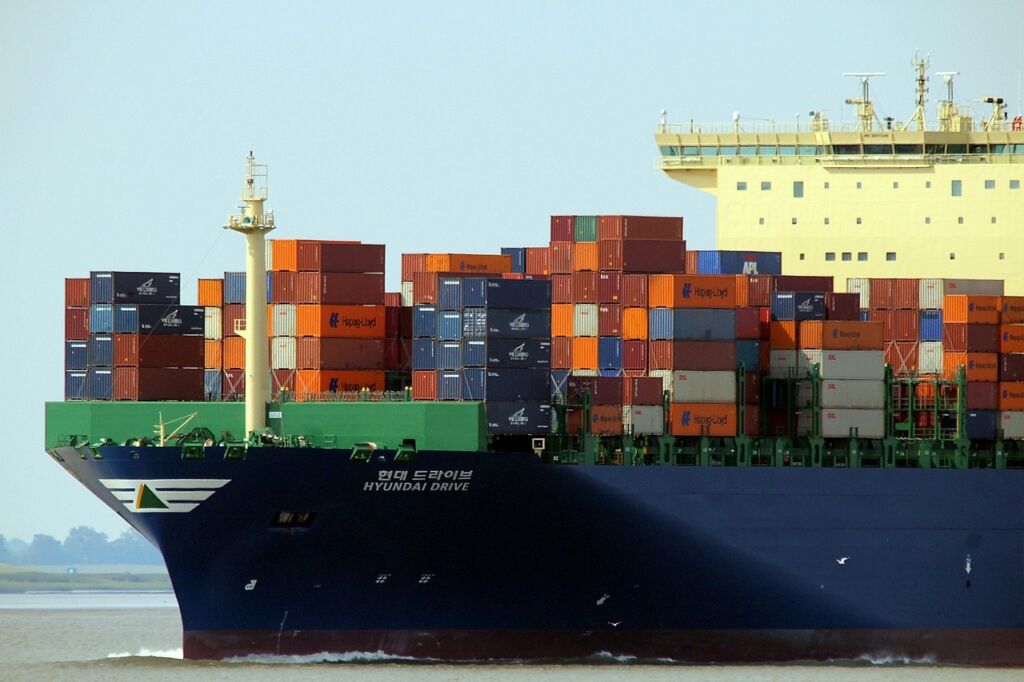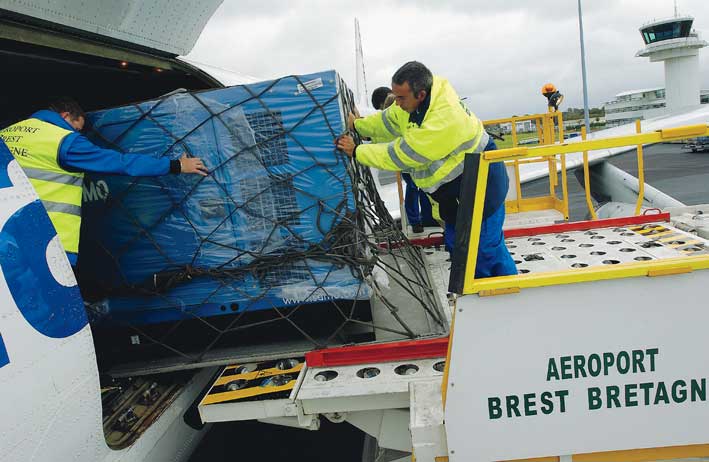When you receive a quote or a purchase invoice from Brags & Hayes Generators you will see the term INCOTERMS mentioned, as relevant information along with other acronyms that may cause confusion when interpreting them. If you are buying merchandise internationally, it is essential to understand what “Incoterms” means and who is responsible for what in your supply chain.
As power generators are merchandise that have a significant size and cost, it is important that you understand the meaning of Incoterms in detail to gain clarity on the terms of delivery of the merchandise that you are buying at Brags & Hayes Generators, which will be delivered to you.
Read on to learn all about “Incoterms”.

Freight incoterms (International Commercial Terms) are the standard terms used in sales contracts for importing and exporting. They are used to define responsibility and liability for goods over the course of a shipment. In other words, they spell out when responsibility for the goods transfers from the supplier to the buyer. They also define who pays which costs for the goods and their transport.
They are a set of globally accepted and standardized rules for international trade, accepted by governments and trade participants, expressed in three-letter acronyms.
Why are Incoterms Important?
Importers and exporters should consider which incoterms is best for them before the contract of sale is negotiated. This can prevent surprise costs and unnecessary complications.
Choosing an incoterm means getting on the same page as your supplier – it aligns everyone on shipping procedures when multiple parties and stakeholders are involved. These globally accepted terms ensure the timely payment of goods, services, and duties, while protecting suppliers, carriers, and buyers.
How Incoterms Impact Your Shipping Cost
Understanding the meaning of the incoterms acronym is essential to know the total transportation costs of the merchandise that I am buying.
Incoterms are used to:
- Until what time and place is the seller or buyer responsible for the merchandise.
- Documentation that must be processed by each of the parties.
- The place where the merchandise is delivered.
- Who is responsible for paying transportation and insurance costs.
Main Incoterms used by Brags & Hayes Generators

FOB (Free On Board)
Brags & Hayes Generators bears the expenses until the merchandise is on board, plus export clearance and origin expenses. It is also in charge of obtaining and contracting the carrier, although this is paid by the importer.
The buyer is responsible for the costs of freight, import procedures, delivery at destination unloading. Responsibility for risks is yours once the merchandise is on board.
This Incoterm is used only in maritime transport.
CIF (Cost, Insurance and Freight)
Brags & Hayes Generators is responsible for everything included in the CFR (* Cost and Freight), but must take out insurance, regardless of the fact that the risk will be transferred to the buyer when the merchandise is on board.
The buyer is responsible for the same as in CFR (* Cost and Freight).
The modification to this Incoterm refers to the insurance coverage that the seller must contract, specifying that they must be the same as Clause C of the Institute Cargo Clauses, which implies that the insurance must cover until arrival at the port of destination. This Incoterm is used for maritime transport.
* See below the detailed definition of the Incoterm CFR (Cost and Freight).
EXW (Ex Works)
Brags & Hayes Generators handles only the packaging and places the merchandise in our warehouses or in the manufacturer’s warehouses, as the case may be, at the disposal of the buyer.
The importer bears all the expenses and is responsible from the moment the merchandise leaves the warehouses, even before loading it.
FCA (Free Carrier) or No charge
Brags & Hayes Generators delivers the cargo at a point agreed with the buyer and assumes the costs and risks until the delivery of the merchandise, including the costs of export clearance. The exporter is responsible for the costs of internal transport and export customs procedures, unless the agreed place is the facilities of Brags & Hayes Generators.
The buyer bears the costs from the time the cargo is on board until it is unloaded.
The modification of this Incoterm indicates that, when it is done via maritime transport, the importer can ask the carrier to specify “on board” in the BOL/BL (Bill of Lading).
Other incoterms commonly used in international trade
CFR (Cost and Freight)
The seller is responsible for all costs until the merchandise reaches the port of destination, including export clearance, origin costs, freight and unloading costs.
The buyer, for his part, is responsible for the import formalities and transport to the destination. He must also bear the risk at the time the merchandise is on board.
This Incoterm is only used in maritime transport.
CPT (Carriage Paid To)
The seller bears the expenses until the delivery of the goods at the agreed place. That is, all the expenses of origin, export clearance, the main transport and expenses at destination.
The buyer is responsible for import formalities and insurance. The risk is transferred to the buyer when the merchandise is loaded to the first means of transport contracted by the seller.
This Incoterm is used in all means of transport.
CIP (Carriage and Insurance Paid)
The seller is responsible for the expenses until delivery at destination: expenses of origin, export clearance, freight and insurance, which, in this case, is mandatory. And it is mandatory that the insurance be All Risk.
The buyer is responsible for import formalities and delivery at destination, assuming the risk when the merchandise is loaded on the first means of transport.
The modification to this Incoterm refers to the insurance coverage that the seller must contract, specifying that they must be equal to Clause A of the Institute Cargo Clauses, indicating that the merchandise must be insured until delivery to the carrier at destination.
DAP (Delivered At Place)
The seller is responsible for all expenses and risks of the operation, except for import clearance and unloading at destination. All costs of origin, freight and internal transport, are at your own expense.
The importer is only responsible for import clearance and unloading.
This Incoterm is used in all means of transport. In case of including insurance, the seller bears the costs.
DPU (Delivered at Place Unloaded)
The seller bears the costs and risks of origin, freight, loading, packaging, export clearance, unloading at destination and delivery.
The buyer bears the costs of the import clearance procedures.
This Incoterm is new and replaces the old DAT, with the only difference that the place of delivery can (must not) be the terminal or any other agreed in the negotiation.
DDP (Delivered Duty Paid)
The seller bears all costs and risks from packaging to delivery at destination, including export and import clearance, freight and insurance.
The buyer only receives and unloads the merchandise.
This Incoterm is the opposite of EXW, since the seller assumes all expenses and risks.
FAS (Free Alongside Ship)
The seller delivers the merchandise at the loading dock of the port of origin and is responsible for the expenses until delivery, as well as export customs procedures.
The buyer is responsible for the cargo on board, pallets, freight and other expenses until delivery at destination, including import clearance and insurance.
This Incoterm is used only for the maritime transport of special goods that have specific cargo needs.
FOB (Free On Board)
The seller bears the expenses until the merchandise is on board, in addition to the export clearance and expenses of origin. He is also in charge of obtaining and contracting the carrier, although this is on behalf of the importer.
The buyer is responsible for the costs of freight, import procedures, delivery at destination unloading. Responsibility for risks is yours once the merchandise is on board.
This Incoterm is used only in maritime transport and should not be used for goods that travel in containers.
Any questions?
We hope that this small and concise guide has been useful to help you understand our quotes and invoices.
If you have any questions, do not hesitate to call your Brags & Hayes Generators sales representative or call us at +1.954.657.7777 and we will gladly clarify all your doubts.


